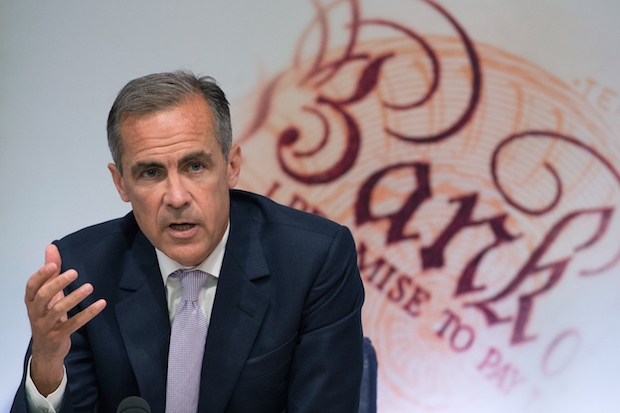Borrowers rejoice, savers despair.
The decision by the Bank of England to cut interest rates to a record low of 0.25 per cent dominated the financial news yesterday. The last time rates were cut, back in March 2009, the world was in the grip of the financial crisis. Ah, life was different then. Leicester City were languishing in League One, Labour’s John McDonnell had been suspended from Parliament after picking up the House of Commons mace, and the Bank was pumping tens of billions of pounds into the economy as well as buying government bonds and corporate debt.
Today McDonnell is Shadow Chancellor and Leicester City are about to start the new football season as Premier League champions. That third point, though. Yesterday the governor of the Bank of England announced plans to purchase £60 billion of UK government bonds. This will increase quantitative easing (the introduction of new money into the economy) to £435 billion. The Bank is also going to buy £10 billion of corporate bonds.
Some commentators believe Britain is on the brink of another recession, although the Bank of England’s quarterly inflation report does not foresee this.
Scott Corfe, director of the Centre for Economics and Business Research, said: ‘Even with this stimulus, CEBR expects economic growth to slow from about 1.5 per cent this year to less than 0.5 per cent in 2017. A recession – at least a couple of quarters of negative growth – will be difficult to avoid and unemployment is likely to rise from current levels.’
This morning the Bank of England deputy governor, Ben Broadbent, told the BBC there could be a further interest rate cut this year if the economy worsens. There’s also the prospect of negative interest rates at some point this year.
The imposition of negative rate on bank reserves would have adverse consequences for banking customers as banks would almost certainly start charging for operating current accounts. Small business account holders have already been forewarned. Natwest has sent out letters to 850,000 business customers indicating that it may begin to charge interest on accounts in credit in the event that the base rate turns negative, and Royal Bank of Scotland has done the same.
And what of savings accounts? Rates have been painfully low for years. Yesterday’s interest rate cut is sure to drive them even lower. It’s no surprise to learn that savers appear to be hoarding cash at the fastest pace since the financial crisis. Statistics released this week by the Bank of England show households and businesses have increased their holdings of banknotes and coins at a rate of more than 8 per cent a year, and there was a rapid acceleration after Britain voted to leave the EU.
The outlook is equally bleak for pensioners. Consider this comment from Steven Cameron, pensions director at Aegon: ‘The further cut in interest rates means now is probably the worst time ever to be making a retirement decision, with those buying an annuity today locking in to super-low returns for life.
‘After seven years of low rates, there’s no guarantee we’ll see any significant improvement in interest rates or annuity terms in the short term. But those not ready to make a ‘once in a lifetime’ decision could consider deferring their retirement date or alternatively keeping their pension fund invested and drawing a retirement income direct from their fund.’
If you’re a borrower, however, it may be time to pop the champagne. The bank rate cut to 0.25 per cent could mean £22 off a typical monthly mortgage if you’re one of the 1.5 million people lucky enough to have a homeloan which tracks the base rate.
Then there are first-time buyers. MoneySuperMarket said: ‘The biggest positive change is likely to be felt by the millions of first-time buyers in the UK, especially those on tracker mortgages, who’ve bought their house in the past seven years and therefore never experienced a rate change. Their monthly payments are only going one way – down. It should also provide much needed confidence for those people considering getting on the property ladder, with some of the best fixed rate mortgage deals available from the likes of Coventry Building Society and HSBC. Borrowers have never had it so good.’
Quite so. Today Leeds Building Society announced it is reducing its standard variable rate mortgage by 0.25 per cent with effect from 1st September. Both HSBC and Virgin Money have said they will do the same. Other lenders are certain to follow.
Helen Nugent is Online Money Editor of The Spectator






Comments